
Jeon Lee, Ph.D. (Director)
Since December 2020, Jeon Lee has been appointed as an Assistant Professor in the Lyda Hill Department of Bioinformatics. He received his Ph.D. in Biomedical Engineering from Yonsei University in South Korea (1999–2006), where he trained as a medical device developer and innovator with biomedical signal processing and machine learning (ML) expertise. He did his 1st post-doc training in the Chronic Disease Informatics Program (PI: Joseph Finkelstein, M.D., Ph.D.) at Johns Hopkins School of Medicine (2013-2014). Subsequently, he studied and developed seminal computational algorithms for big data mining while working as a post-doc and later as an Assistant Research Scientist (parallel to Assistant Professor) for the Department of Computer Science and Electrical Engineering (PI: Seung-Jun Kim, Ph.D.) at the University of Maryland, Baltimore County (2014-2015). He joined UT Southwestern Medical Center as a Computational Biologist in 2016 and led the machine learning team at the Bioinformatics Core Facility from 2018 to 2020.
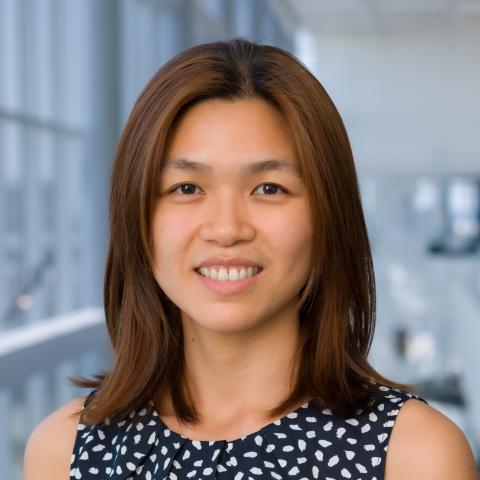
Jui Wan Loh, Ph.D. (Computational Biologist II)
Jui Wan received her B.S. (in Biotechnology) and Ph.D. (in Microbiology and Molecular Genetics) degrees from Rutgers University in 2015 and 2021 respectively. After her Ph.D. graduation, she worked as a Research Fellow in Singapore for 3 years (at National Cancer Centre Singapore and Duke-NUS Medical School). She has experience in high-throughput data sequencing analysis, particularly in genomics and transcriptomics, both at bulk and single-cell level. In her free time, she enjoys swimming and hiking.
Jingxuan Chen, Ph.D. (Computational Biologist II)
Jingxuan received her Ph.D. in Bioinformatics from The University of Georgia (2018-2023), and Bachelor’s degree in Biological Science from Beijing Normal University in China (2014-2018). Jingxuan has 6+ years experience in handling large-scale next- and third-generation sequencing data (WGS, WES, and bulk RNA-seq) and HPC cluster computing. She is also experienced in developing reproducible bioinformatics workflows and evaluation of bioinformatics tools. She is proficient in scripting languages Python, R and Bash, and experienced in using Snakemake for workflow management. She is passionate about analyzing variant omics data and developing novel computational tools to support the cutting-edge cancer research, as part of DSSR.
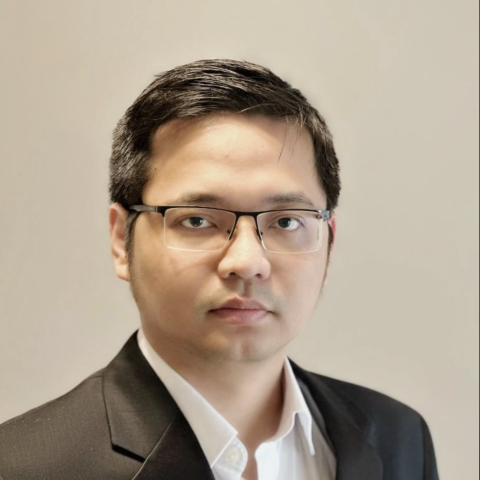
Ngoc Khoi Dang, M.S. (Computational Biologist II)
Ngoc Khoi Dang (Khoi Dang) earned his Master of Science in Applied Computer Science from Virginia Tech in 2021, focusing on applying Machine Learning and Deep Learning to biological data. His master's research involved developing and implementing advanced computational methods to identify and characterize ARGs within complex microbial communities. He then worked as a Data Scientist for three years at MD Anderson Cancer Center in the Epigenetics and Molecular Carcinogenesis department. His responsibilities included creating novel algorithms to detect and categorize DNA repair mechanisms and analyzing bulk RNA sequencing and CUT&RUN data in high-performance computing environments. In 2025, he joined the DSSR team at UT Southwestern Medical Center as a Computational Biologist II. His current interests include single-cell data analysis, especially the development and deployment of robust computational pipelines, including containerization for reproducibility and scalability, to analyze these complex datasets
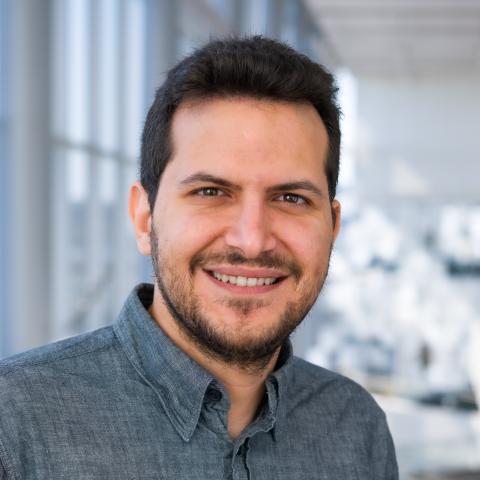
Ermis-loannis Michail-Delopoulos, M.S. (Computational Biologist I)
Ermis holds an integrated Bachelor’s and Master’s degree in Biotechnology from the Agricultural University of Athens (2019) and a Master’s degree in Bioinformatics from KU Leuven University in Belgium (2024). Throughout his studies, he focused on NGS analyses (e.g., bulk RNA-seq and scRNA-seq), as well as microbial interactions and microbial association networks, where he developed a Cytoscape plugin to enhance their visualization and exploration. Additionally, as a Computational Biologist at the Lab of Microbial Systems Biology at KU Leuven, he applied machine learning techniques to analyze and predict co-culture abundances in microbial flow cytometry data. His programming skills include Java, Python, R, and Bash. He is passionate about software development and leveraging computational tools in genetic research. In his free time, he enjoys playing video games and basketball.
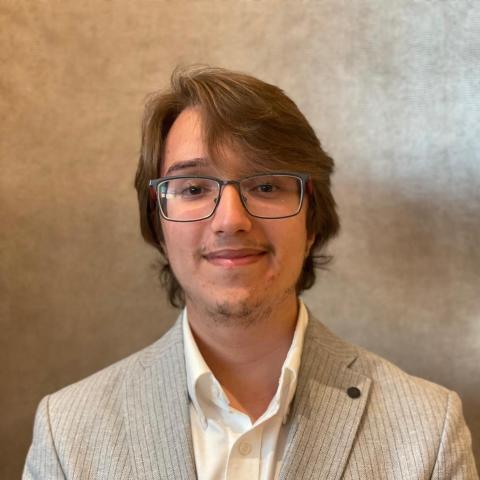
Omar Halawa, M.S. (Computational Biologist)
Omar earned his BS in Bioinformatics (2024) and MS in Biology (2025) from UC San Diego. During his studies, he developed machine learning and 'omics tools for GenePattern, a web platform for reproducible bioinformatics, and worked on an algorithm to refine sets of genes representing pathways for RNA-seq enrichment analysis. For his Master’s research, he applied wet lab and computational approaches to explore unknown bacteriophage genes and built a pipeline for protein quantification via GFP-tagged yeast colony imaging. He is driven by a passion for computational methods and a mission to improve clinical outcomes. In his free time, he enjoys playing chess and video games.
Alumni
Hankyu (Chris) Lee
New Position: Scientist I at The Wyss Institute at Harvard University, Boston, MA
UTSW Position: Computational Biologist I
Working period: October 2023 🡪 December 2024
Khushi Ahuja
New Position: Bioinformatics Analyst II at Medical College of Wisconsin, Milwaukee, IL
UTSW Position: Computational Biologist I
Working period: September 2023 🡪 July 2025
DSSR Fellows
Second Cycle [September 2024 - June 2025]
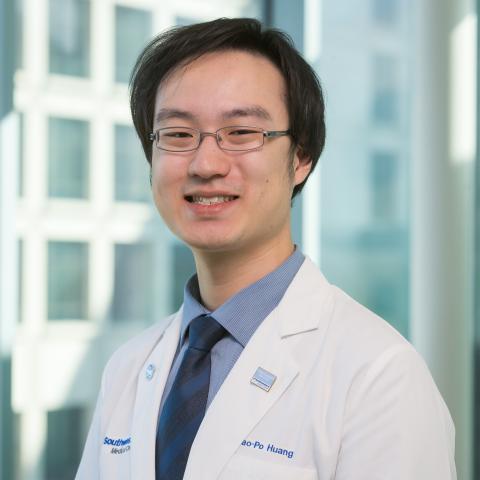
Shao-Po (Shawn) Huang
Shao-Po (Shawn) Huang is a Perot Family Scholars MD/PhD student in Dr. Isaac Chan’s lab and a Data Science Shared Resource (DSSR) Fellow. He earned his B.S. with honors in Biomedical Engineering at the University of Texas at Austin in 2020. After graduating, he worked for two years as a scientist in biotechnology discovery research at Eli Lilly and Co., where he contributed to projects relating to diabetes and immunology. Shawn’s current research involves investigating intratumoral heterogeneity and the mechanisms by which it influences immune response and surrounding healthy tissue homeostasis in metastatic breast cancer. He will build upon the lab’s prior bioinformatics work, which established the largest reference single-cell RNA-seq atlas of primary breast tumor and demonstrated that intratumoral heterogeneity, represented as 10 gene elements (GEs), can be used to predict patient response to anti-PD1 immunotherapy (Xu, Saunders, and Huang et al., Cell Reports Medicine, 2024). As a DSSR Fellow, Shawn aims to develop an advanced spatial transcriptomics analytical pipeline that integrates Xenium and Visium data in order to interrogate differences in GE composition and its impact on the role of NK cells in the breast tumor primary site versus metastatic sites in the liver.
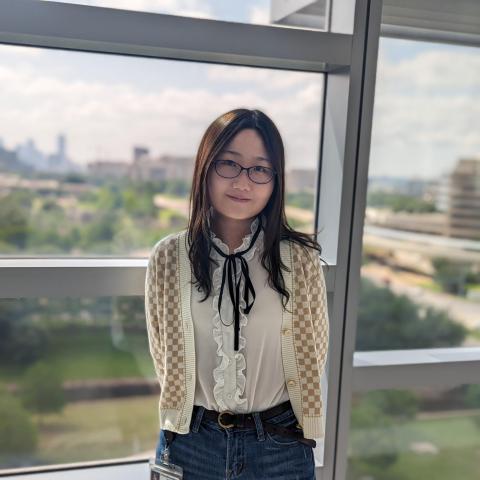
Qiuyun Pan
Qiuyun is a PhD student in the Zhong Lab and a DSSR fellow. She completed her B.S. in Biology at Indiana University in Bloomington and her M.S. in Biomedical Engineering at Washington University in St. Louis. During her DSSR fellowship, Qiuyun is delving into the mechanisms by which obesity leads to chronic liver inflammation and hepatocellular carcinoma, specifically focusing on the hypernutrition-induced dysregulation of liver macrophages. Furthermore, she is investigating how obesity causes enduring epigenetic changes in hematopoietic stem and progenitor cells, influencing gene expression in mature myeloid cells. These changes persist even after weight loss and may increase susceptibility to liver tumorigenesis upon returning to normal weight.
First Cycle [January 2024 - June 2024]
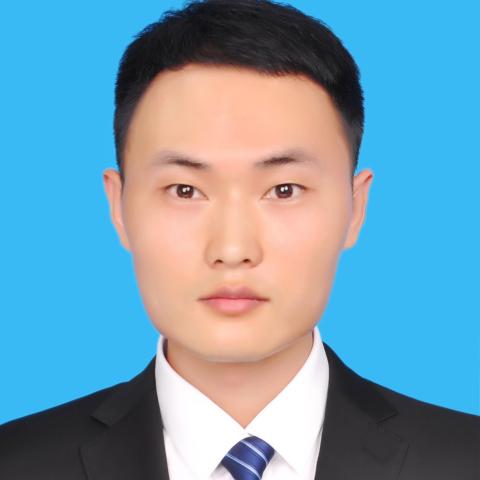
Boyuan Li, PhD
Boyuan Li earned his PhD from Peking University. His dissertation focused on 3D genome structure, epigenomics, and transcription regulation. With his current DSSR Fellowship, he plans to perform and analyze cell-free DNA sequencing to detect somatic mutations in patients with liver cirrhosis but not cancer. After completion of his Fellowship, he would like to expand his research to identify somatic mutations in liver disease and to develop an algorithm for detecting low-frequency mutations within barcode sequences of duplex molecules. Outside of his research and work, he enjoys swimming, traveling, reading, running, and playing chess.
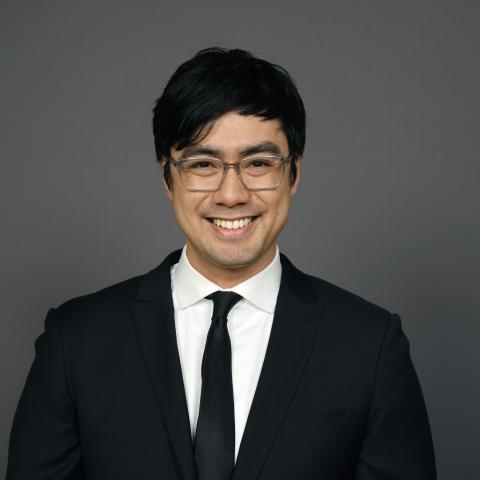
Peter Leung (Fellowship extended to Dec 2024)
Peter is currently an MD/PhD student in the Aguilera Lab and a Data Science Shared Resource (DSSR) Fellow. Peter received his B.A. in biological sciences from the University of Chicago in 2018. After a year at the Navy Medical Research Center, Peter started medical school at UTSW in 2019 and joined Dr. Aguilera's Lab. After a dedicated research year in the lab as a UTSW Dean's Research Scholar, he then joined the Perot Family Scholars Medical Scientist MD/PhD Training Program in July of 2022. His current work as a PhD student and interests in computational analysis has led him to seek additional training as a DSSR Fellow. Peter’s current project in the DSSR fellowship involves analyzing nanobody (variable domain of camelid antibody) sequences that differentially bind to certain cell types, and identifying specific nanobodies that can functionally alter tumor-infiltrating immune cells to have more anti-cancer phenotypes. Additionally, Peter is working on a project to identify differences in RNA sequencing data and clinical outcomes from UTSW pancreatic cancer patients treated with different pre-surgical therapies. For these projects, Peter aims to enhance the INSPIRE-seq pipeline that his lab has developed (Sekar & Elchonaimy 2023 Nat Commun) to analyze these nanobody sequences, adding an additional capability of this pipeline to identify functionally active nanobodies. For his pancreatic cancer project, Peter will explore effects of different treatment modalities on RNA sequencing patterns in the tumor microenvironment and correlate those findings with clinical outcomes of these UTSW patients.